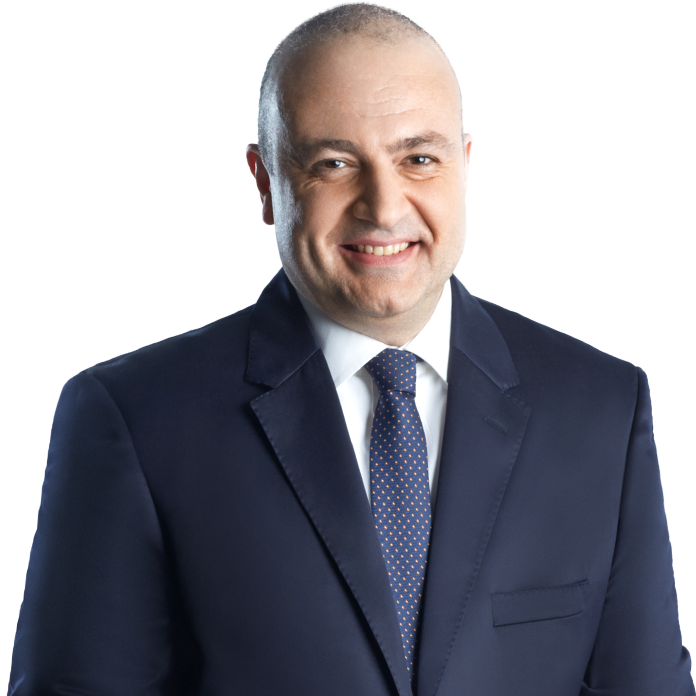Part of these have been transpiring. Certain top secret operations are also being "sensed." Funny business.
During the time, in which the conditions the Gulf countries presented to Doha in the Gulf crisis were not yet known, U.S. Secretary of State Rex Tillerson had said: "We understand that Saudi Arabia, the United Arab Emirates, Egypt and Bahrain prepared a list of demands. We hope these demands, soon be presented to Qatar, are reasonable and applicable."
I had previously written that these conditions were drawn up "according to the U.S." – or if you please, "by the U.S."
Naturally, they know best which of these conditions are "unreasonable" and which can be "alleviated." (Leaking the conditions is something else entirely, a separate trap.)
There is the continuation of the Tillerson statement.
"The U.S. supports mediation efforts made to solve the Qatar crisis." ("ABD, Katar’a verilecek istekler listesinin makul olması gerektiğini söyledi" (U.S. said the list of demands to be given to Qatar needs to be reasonable), 22/06, Star.)
In other words, you are going to discuss these conditions and bargain with us. "Reasonable" means negotiating.
The Emirates got the message. If no other development took place, the Qatar Foreign Ministry could have made the following statement: "The U.S.'s stance was received well by Doha."
The behind the scenes of the two critical moments are a huge mystery.
Once it is solved, the positions of the allies and enemies in the region will be apparent.
The first are the events that occured following the announcement of Prince Muhammad bin Salman being announced crown prince. The second is whether a greater plan, than that which was reflected in the global public opinion, was conceived the moment the bid aimed at Qatar commenced.
Taking a look at the first instance…
It was already known in Saudi Arabia that Crown Prince Salman was preparing for the throne, that was no surprise. In the Kingdom, the list of candidates is prepared in advance to prevent any chaos that could drag the country to danger in an event of sudden changes.
Hence, even though Salman's nephew Muhammad bin Nayef being brought to the throne was debated at first, the hearsay that Prince Salman had gained experience was circulated. The real aim was to keep him behind the scenes "to prevent/protect him from becoming a target."
The Saudi internal balances could have created a threat and there were major tensions with Barack Obama’s administration at the time. What's more is, the two central crises could have abruptly intersected.
It is impossible that Prince bin Nayef is unaware of this sensitive scale. In his own way, he sought an ally. The U.S. also aware of the situation, and at that time could have only had Nayef in the palm of their hands. The relationship could have only been carried out through certain channels and aims because of the king and his son.
The CIA-Nayef friendship could have been strengthened under a roof to which nobody would object. In the Middle East, when you say, "fighting terrorism," you open an unlimited and safe zone and there is no "shame" regarding your actions.
Additionally, Prince Nayef is a suitable candidate; ever since the start of the second millennium, he has accumulated strong ties within the wheels of the intelligence-security. He was in both the FBI and Scotland Yard and escaped assassination by al-Qaida in 2009.
Moving on with a single quote. In early February, on his first visit abroad, CIA Director Mike Pompeo went to Saudi Arabia and presented Prince Nayef a CIA medal.
Al Jazeera announced this sacred incident as: The next inheritor to the Saudi throne received his counter-terrorism medal from the hands of CIA's new director." ("Bin Nayef receives CIA award for 'counter-terrorism," 12/02, Al Jazeera. Pompeo had gone to Riyadh from Ankara.) One question is, was this medal a "farewell gift" or did the Washington administration plan on continuing with Nauef from the beginning?
It is understood that the precise answer to this question, and the establishment of the king and crown prince was settled upon during U.S. President Donald Trump's Riyadh-Tel Aviv-Vatican tour.
But had Prince Nayef known?
Doha's concerns and the measures it took on the day and night a series of countries besieged Qatar, under Saudi leadership, may become clear in time. What is not clear are the concerns of Riyadh as to the changing of the heir to the throne and the measures that have been taken regarding these changes.
Is it possible that such measures have been taken: "Last Wednesday, Saudi King Salman bin Abdulaziz brought his son Muhammad bin Salman instead of Crown Prince Muhammad bin Nayef. Following the announcement of this decision, Israel Air Forces, warcraft including F-16s, F-15CDs and F-16CDs, two Gulfstream type planes, two tanker planes and two special C130 planes exclusively designed for electronic war were sent to Saudi Arabia." ("18 Israeli Fighter Jets Landed in Saudi Arabia to Prevent Coup," 22/06, Global Search.)
If this is true, based on what did Israel do this?
Could it be possible?
The same source says this invitation was made directly by Crown Prince bin Salman.
Why?
To prevent the likely attempts of his cousin Prince bin Nayef.
In short, when contemplating who protects Riyadh and who protects Doha (The Times: "Türkiye'nin Katar'a siyasi ve ekonomik desteği kadar, caydırıcılığı da rol oynuyor," (25/06)), it makes one think whether the Middle East's new black holes are expanding or diminishing.




















